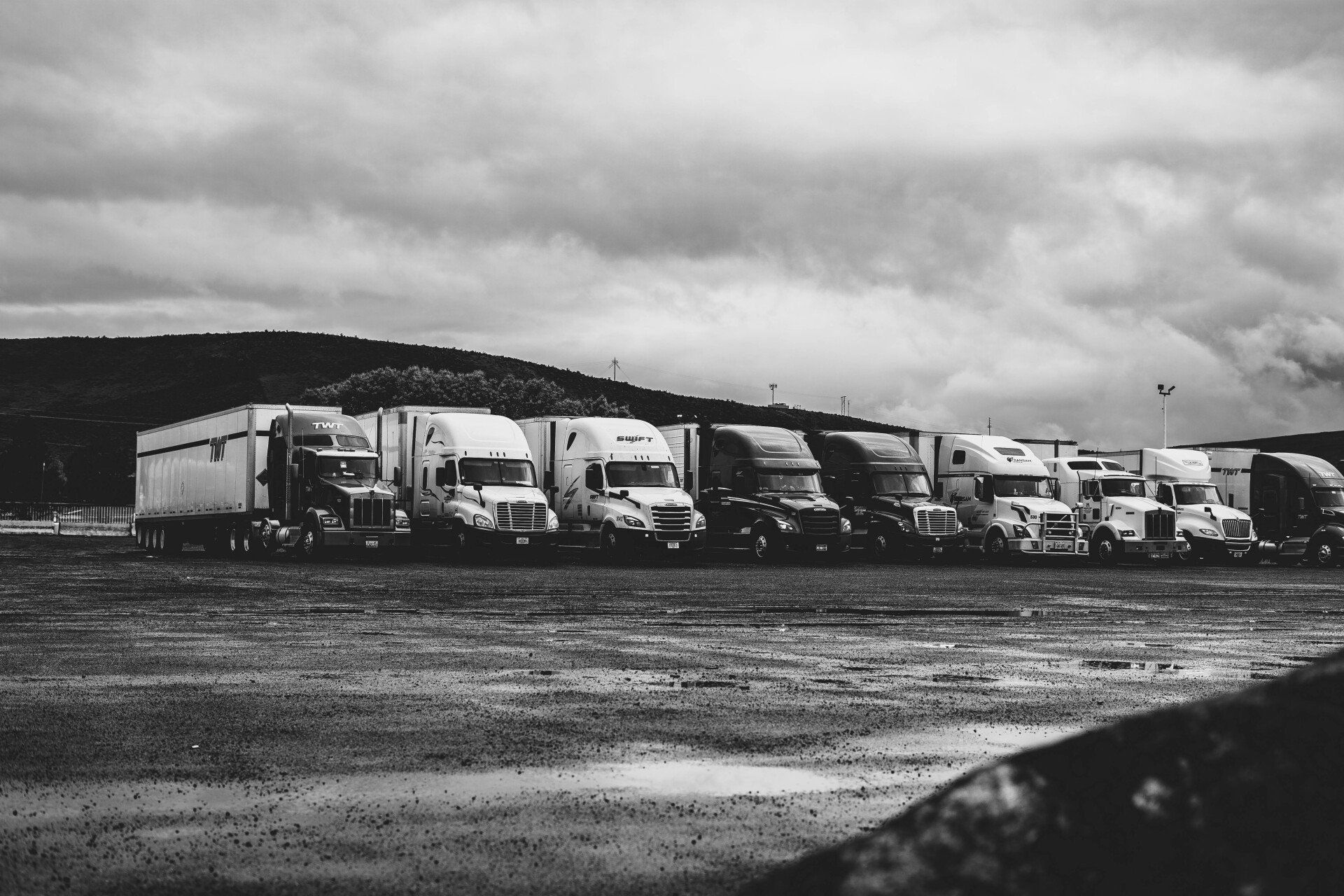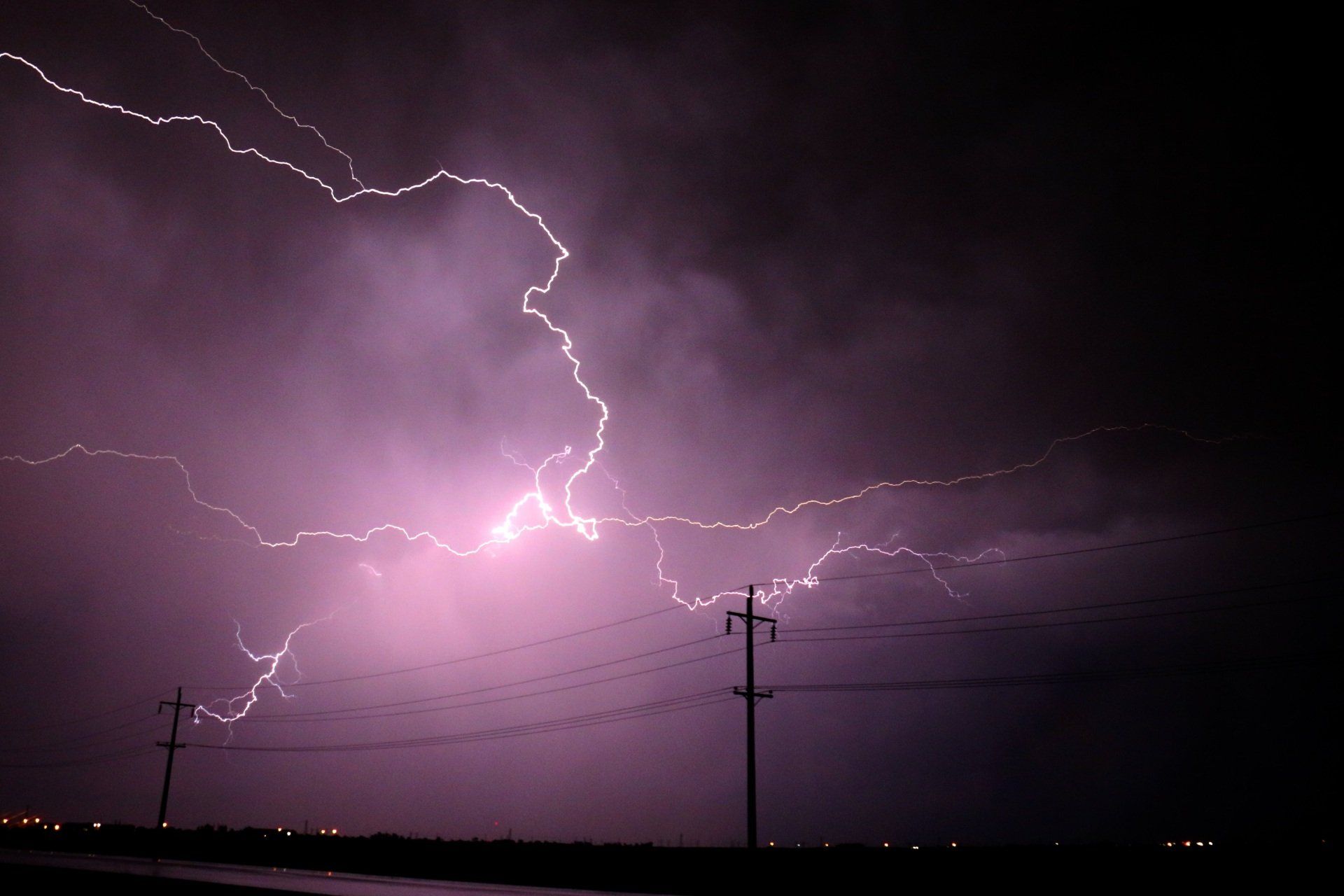Tips to Avoid a Truck Accident or 18 Wheeler Accident
Truck and 18 wheeler accidents can be devastating and cause severe injury or even death. As a driver, it is important to take the proper precautions and understand the risks associated with sharing the road with large commercial vehicles. In this blog post, we will discuss 10 safety tips that can help you avoid a truck or 18 wheeler accident. We will also provide helpful information about the different laws and regulations governing truck and 18 wheeler drivers and the steps you can take to protect yourself and your loved ones on the road. Read on to learn more.
1) Be aware of an 18 wheeler's blind spots
One of the most important safety tips to follow when driving around large trucks and 18-wheelers is to always be aware of their blind spots. Large trucks have large blind spots and when you are in one of those spots, the driver of the truck won’t be able to see you. To stay safe, always make sure to check your mirrors and look over your shoulder before changing lanes or merging. If you can’t see the truck’s side mirrors, then the driver can’t see you either. It’s also important to keep in mind that large trucks need much more time to slow down or speed up than smaller vehicles, so always give them plenty of space.
When approaching an intersection with a large truck nearby, it's best to come to a complete stop instead of rolling through it. Be patient when following large trucks as they usually travel slower than other cars on the road. Additionally, don't try to squeeze between two large trucks as there may not be enough room for you and it could result in an accident. Finally, if a truck has their blinkers on, it's best to slow down and get out of their way as soon as possible because they may have difficulty changing lanes if other cars are too close by, or the driver might not see you if you are in one of their blind spots. Following these simple tips will help ensure that you're keeping yourself and others on the road safe from any potential accidents involving 18-wheelers and other large trucks.
2) Use your signals
Driving safely around trucks and 18-wheelers requires communication with other drivers. One of the best ways to do this is to always use your signals when changing lanes or merging. Before turning, switching lanes, merging, or passing, be sure to activate your turn signal to alert nearby drivers of your intentions. This will give other drivers time to adjust their speed or move out of your way, preventing an accident from occurring. Not using your signals can cause confusion for other drivers, leading to collisions. It’s also important to use your headlights at night or during bad weather. Your headlights make your vehicle more visible to other drivers, which is essential for avoiding a collision. When using your signals and headlights, be sure to do so in plenty of time so that other drivers are given a chance to respond.
3) Follow the speed limit
One of the most important safety tips to keep in mind when driving around trucks or 18 wheelers is to follow the speed limit. It’s important to remember that due to their size and weight, big trucks require more time and distance to slow down and stop. This means that if you are driving too fast, it can be difficult for the truck driver to react in time to changes in traffic or hazardous road conditions. It’s also important to note that truck drivers must abide by speed limits, which may be lower than what other vehicles are allowed to travel.
It’s essential to pay attention to posted speed limits and other traffic signs when driving near trucks or 18 wheelers. Make sure you give yourself plenty of time to brake and slow down when approaching a truck so they have enough time to react and adjust their speed. Also remember that when driving at night, it can be difficult for truck drivers to see ahead clearly, so reducing your speed is always a good idea.
When you are driving near a truck, it’s important to obey all traffic laws and follow the posted speed limit. This will ensure that both you and the truck driver have enough time to respond to changes in traffic or road conditions.
4) Don't tailgate
Tailgating is a major cause of truck and 18 wheeler accidents, and it's something you should avoid doing at all costs. Tailgating is when you drive too close to the vehicle in front of you, which can be especially dangerous when dealing with large trucks.
When driving behind a truck, make sure to maintain a safe distance at all times. This is even more important when driving on a highway, as it's easy to get into an accident if you don't have enough time to react. Remember that it takes much longer for a large truck to slow down than a car, so if you're too close, you may not have enough time to brake in time if the truck has to stop suddenly.
By giving trucks plenty of space, you'll be able to stay safe and avoid any potential accidents. Be sure to leave plenty of room between your vehicle and the truck in front of you, and be extra cautious when passing or merging.
5) Don't cut off trucks
When driving around trucks and 18 wheelers, one of the most important safety rules is to never cut them off. Doing so could result in a serious accident. It's also illegal in most states.
Trucks require a longer stopping distance than smaller vehicles, so they need plenty of room to slow down and stop safely. Cutting them off reduces the space they have to stop, making it more likely that they'll hit you or another car on the road.
Furthermore, cutting off trucks can cause the driver to become angry and behave recklessly, which can be incredibly dangerous for everyone involved. To avoid this scenario, give trucks plenty of space when passing and make sure you're following all traffic laws. If a truck is driving too close behind you, simply pull over and let them pass. This will help ensure that everyone stays safe on the road.
6) Don't weave in and out of lanes
When sharing the road with large trucks, it is important to stay in your lane and never weave in and out of lanes. Weaving in and out of lanes is a dangerous maneuver for any vehicle, but especially for truckers. Trucks are large and have slow acceleration, so if you unexpectedly move into their lane, they may not be able to react quickly enough to avoid hitting you. Furthermore, when you weave in and out of lanes, you may not see a truck that is merging or exiting from an on-ramp. When you are driving around trucks, it is important to stay in your lane, use your signals, and give them plenty of space.
7) Don't drive distracted
Distracted driving is a major cause of truck and 18 wheeler accidents, and something that all drivers should be aware of and practice avoiding. Distracted driving can include anything from texting and eating to using a GPS or changing the radio station. All of these things are hazardous and can cause serious damage to both you and other drivers.
When driving a truck or 18 wheeler, it's even more important to be aware of potential distractions and take steps to avoid them. You should keep your eyes on the road at all times and try to minimize the amount of time you spend checking other sources for information. If possible, have a co-driver or passenger who can help you navigate and take care of other tasks while you focus on the road ahead.
It's also important to stay alert and attentive behind the wheel. Avoiding activities that require too much mental energy or physical effort, such as reading a book or reaching over to adjust the radio. Taking regular breaks to stretch and rest your eyes is also recommended.
By avoiding distractions and remaining vigilant, you can help prevent truck and 18 wheeler accidents. Don't drive distracted – stay focused on the road and make safety your number one priority.
8) Don't drive drowsy
Driving while drowsy can be just as dangerous as driving while under the influence of alcohol. It impairs your judgement and can lead to accidents. If you are feeling tired, pull over and take a break or switch drivers if you are on a long trip. You can also try getting some fresh air or opening the windows in your car. Make sure to avoid heavy meals, alcohol, and any medications that might cause drowsiness when operating a vehicle. Pay attention to signs of fatigue such as frequent yawning, difficulty focusing, missing your exit, and drifting out of your lane. If these signs become too severe, find a safe place to rest.
9) Give trucks plenty of space
When driving near or around trucks, you should always give them plenty of space. Truck drivers often have limited visibility due to their large size, and they need to be able to maneuver safely. Giving them the extra space they need will reduce the chances of a collision. When following a truck, make sure you leave plenty of distance between you and the truck. This will give you time to react if the truck needs to suddenly stop. When passing a truck, you should also leave plenty of room for them to move over if necessary. By giving trucks plenty of space, you can help ensure that everyone on the road stays safe.
10) Be cautious in bad weather
When driving a truck or 18 wheeler in bad weather, extra caution is always necessary. Rain, snow and ice can all significantly reduce visibility and increase the risk of accidents. If you find yourself in a situation where you must drive in bad weather, there are some steps you can take to ensure your safety:
1. Slow down. You should always slow down when driving in bad weather. Reduce your speed to a safe level that allows you to react quickly and appropriately if needed.
2. Increase following distance. In wet conditions, it takes longer for a vehicle to come to a complete stop, so increase the following distance between yourself and other vehicles.
3. Use your lights. Turn on your headlights and fog lights to increase visibility for yourself and other drivers.
4. Be aware of your surroundings. Pay attention to the other drivers around you and be prepared for unexpected turns and stops.
5. Don't use cruise control in rainy conditions or otherwise dangerous weather conditions. In bad weather conditions, it's best to avoid using cruise control. This can cause you to lose control of the vehicle if something unexpected happens.
Following these tips will help you stay safe when driving in bad weather. Remember to take extra care when driving a truck or 18 wheeler, as they require more time to stop and are more difficult to maneuver than smaller vehicles.
MORE ALABAMA INJURY LAW NEWS






OUR LAW FIRM IS HERE TO HELP
Contact our Birmingham, Alabama Injury Lawyers Today for Legal Help
Have you or a family member recently been injured in an accident in Alabama? Contact Snable Stevenson & Silva for immediate legal assistance and advice. You may be able to pursue compensation for your medical bills, lost wages, and other expenses. Our qualified Alabama injury lawyers can help you fight to secure a full and fair award.
We offer a free case evaluation and consultation. Contact our law office in Birmingham, Alabama to schedule yours today. If you can’t come to us, we can arrange a time to visit you. Consultations can be arranged at the hospital, your home, or even your place of business. There’s a limited amount of time to act, so give us a call to get started today.
FREE CASE EVALUATION
GET STARTED
Thank you for submitting a request.
Our team will follow up with you as soon as possible.
There was an error sending your message.
Please try again later.
(800) 266-0877 • attorneys@snablestevenson.com
(205) 582-8000 • 2737 Highland Ave South, Birmingham, AL 35205
(901) 474-2900 • 1545 Union Ave, Memphis, TN 38104
This website is an advertisement for legal services. No representation is made that the quality of the legal services to be performed is greater than the quality of legal services performed by other lawyers. Use of this website signifies your agreement to the Terms of Use, Privacy Policy, and Form Disclaimer.
Snable Stevenson & Silva L.L.C.

